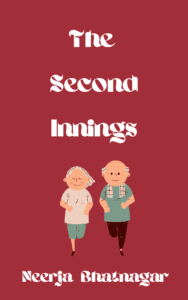In India, marriage is not just a union of two individuals but a sacred bond between two families and their karmic destinies. One of the most crucial elements considered during matchmaking in traditional Indian families is astrology. Among the various astrological concerns, Mangal Dosha (also known as Kuja Dosha or Manglik Dosha) is one of the most talked-about and often misunderstood concepts.
This ancient belief, deeply rooted in Vedic astrology, plays a pivotal role in deciding marital compatibility, especially in arranged marriages. But what exactly is Mangal Dosha, and why does it matter so much?
What Is Mangal Dosha?
Mangal Dosha occurs when Mars (Mangal) is placed in certain houses (1st, 2nd, 4th, 7th, 8th, or 12th) of a person’s horoscope. Mars, being a fiery planet, symbolizes energy, aggression, and conflict. When placed in these specific positions, it is believed to negatively influence the native’s married life, leading to misunderstandings, delays in marriage, or marital discord.
Such a person is called a Manglik.
Why Is It Considered Serious?
In traditional beliefs, the presence of Mangal Dosha can create imbalance and tension in a marriage if the partner is non-Manglik, due to conflicting planetary energies. Hence, astrologers often recommend that a Manglik should ideally marry another Manglik to neutralize the dosha.
This idea is based on the theory of energy compatibility, aiming to ensure harmony in emotional, physical, and spiritual aspects of a marriage.
Astrological Significance in Matchmaking
Matchmaking in Indian culture involves kundali milan (horoscope matching), which considers several factors, including:
- Guna Milan (Ashta Koot matching): Checks eight aspects for compatibility.
- Manglik Dosha Check: Determines the presence of Mangal in the charts.
- Navamsa chart analysis: Studies deeper compatibility for long-term relationships.
Mangal Dosha is just one component among many, but it often takes center stage due to its association with marital harmony and timing.
Remedies Suggested in Scriptures
Vedic texts and astrology offer several remedies to balance the effects of Mangal Dosha. These include:
- Kumbh Vivah (Marriage with a Pot): A symbolic ritual where the Manglik first marries a clay pot or a sacred tree like the Peepal or banana tree to absorb the negative energy.
- Chanting of Hanuman Chalisa and Mars Mantras: Since Lord Hanuman is believed to control the effects of Mars, regular recitation is advised.
- Fasting on Tuesdays (Mangalvar Vrat): Known to please the planet Mars and reduce its malefic effects.
- Wearing Red Coral: This gemstone, associated with Mars, is said to help control its influence when advised by an astrologer.
- Performing Mangal Shanti Puja: A special ritual to calm Mars and invoke positive energies.
Science or Superstition?
Critics argue that these astrological practices, including Mangal Dosha, are rooted in superstition and have no scientific basis. However, believers say that astrology offers psychological comfort and direction, especially in a country where marriage is a lifelong commitment, and families seek every possible assurance of success.
Interestingly, modern astrologers also consider other planetary combinations and take a more balanced approach, often suggesting remedies instead of outright rejecting matches.
Shifting Trends in Modern India
Urbanization, education, and intercultural interactions are changing the way young Indians approach astrology. Many couples, especially in love marriages, either ignore Mangal Dosha or choose to perform symbolic rituals to satisfy family concerns. Still, in many traditional households, especially in rural India, Mangal Dosha continues to be a deciding factor.
A Blend of Belief and Balance
Mangal Dosha is an ancient belief that still holds emotional and cultural significance in many Indian families. While modern life demands rational thinking and emotional maturity in relationships, astrology can still serve as a reflective tool for understanding compatibility.
Whether one believes in it fully, partially, or not at all, the rituals, stories, and wisdom surrounding Mangal Dosha are undeniably part of India’s fascinating heritage of blending the cosmic with the personal.
Have you encountered Mangal Dosha in your life or heard stories around it? Share your thoughts in the comments—let’s decode the stars together!
Blogchatter A2Z powers this post.
I am participating in this month-long challenge hosted by Blogchatter. You can check out my other posts about this challenge here.
Neerja Bhatnagar
Feel free to connect with me on social media to stay updated on more content like this!
Instagram | Facebook | YouTube |Twitter |Podcast |
I have written 3 solo books and 3 anthologies. You can buy my books on Amazon. If you are on Kindle Unlimited, you can read them for free. Pls, do check and share your reviews.




Even though modernity has made its way, Mangal Dosha & its prevention is very much active in India. But the funny part is even with horoscope matching & nil Mangal Dosha , one can have a divorce or a rocky marriage . Where as in some cases, without any worry about matching horoscopes, couples lead a blissful married life. Somethings are beyond my understanding.
So true—and thank you for such an honest reflection. Astrology, including things like Mangal Dosha, gives us a map of what the planets might have in store. But it’s not the final word. As human beings, we’ve been gifted something even more powerful—karma and buddhi.
Our karma (actions) and buddhi (intellect/awareness) have the potential to influence or even change the course set by our stars. That’s why, sometimes, even with a “perfectly matched” horoscope, marriages face storms. And in other cases, where charts weren’t matched at all, couples create a bond so strong, it’s as if they rewrote their destiny together.
Astrology can guide us, but it’s how we live, love, and grow that shapes our reality. Some things are indeed beyond understanding—and maybe that’s the beauty of being human.
Mangal Dosha is still looked into very carefully when horoscopes are matched. People obviously do not want to take any chances with the planet, Shani.
I guess, yes!